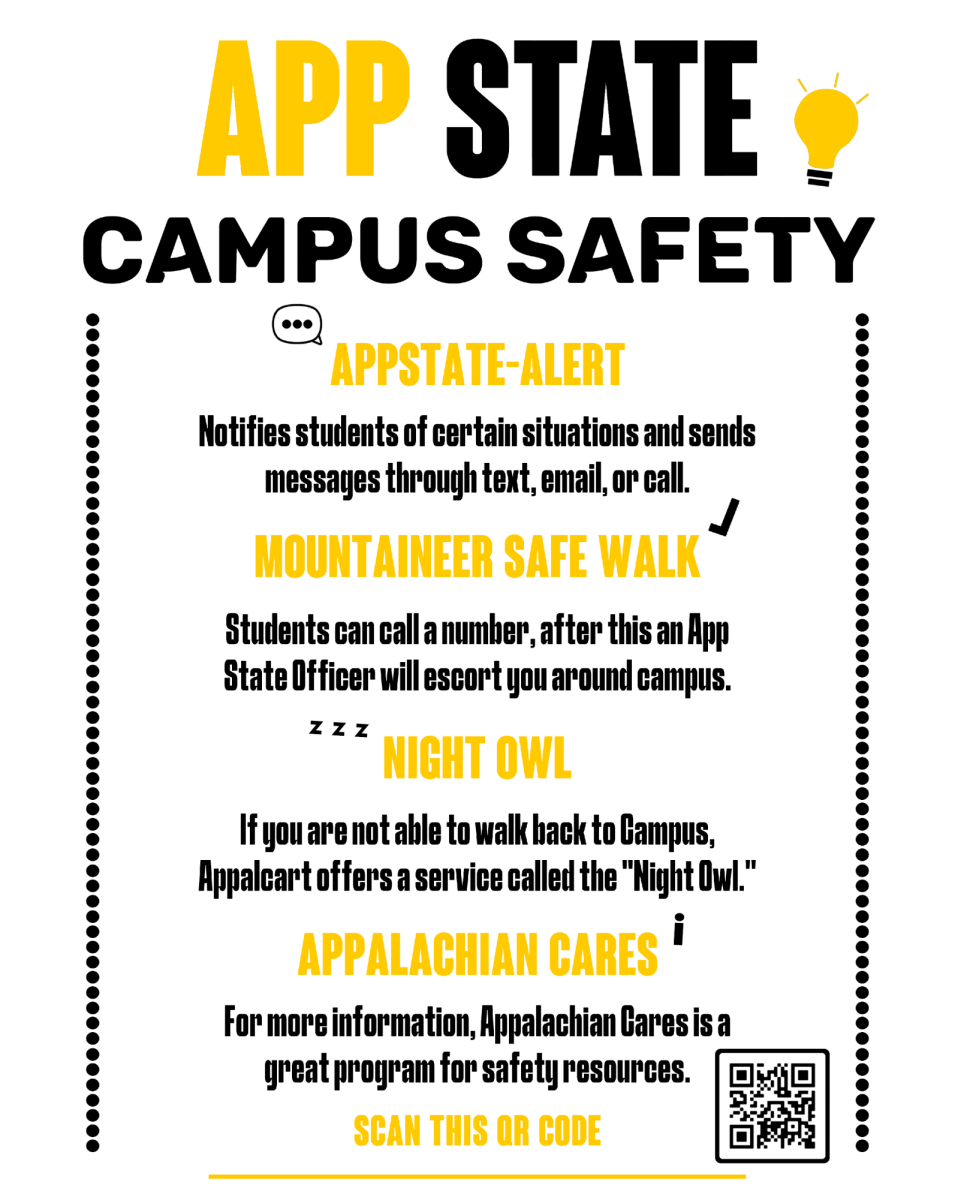With different threats happening all around the country, the safety of students on campus should be a high priority for the university. It is of the greatest importance that students are aware of what to do in emergencies.
Students should not have to be so hyper-vigilant about educating themselves on the school’s emergency procedures, but with school shootings and other threats happening almost every day across the country, it is the unfortunate reality that students must be prepared.
Even though App State has a great plan for what to do when emergencies happen, it is not enough. UNC-Chapel Hill has an emergency action plan similar to the university’s, and despite this many faculty members said they still felt unprepared on how to handle an active shooter situation.
App State needs to have mandated active shooter training to prevent our students and faculty from feeling the same unpreparedness that those at Chapel Hill felt on the day of the shooting. In addition, some professors continued to lecture or switch their classes to Zoom during the presence of an active shooter. This is entirely unacceptable and could have been avoided.
According to reporting from The Daily Tar Heel, “Some faculty and students speculated that miscommunication and lack of training were the reasons some professors continued teaching during the active situation on Aug. 28.”
As shootings continue to happen across the country, it is essential that App State learns from the errors of other institutions and updates their emergency planning and training for these situations accordingly.

App State offers many different safety resources to students, and it is crucial to be prepared and aware of how to access these resources so that students know what to do in an emergency. One of these resources is the AppState-ALERT emergency messaging system, which notifies students of certain situations through text, call or email. Students can register for this using AppalNet, and it will send an alert when there is any “imminent threat” on or near campus. It is extremely important for students to opt-in for these messages in case of an emergency.
When the recent Chapel Hill shooting occurred, many students heard the sirens, but because they did not receive the alerts from the university they thought the sirens were a test and did not take them as seriously. This is why it is so important for students to make sure that they are getting these alerts so that if the sirens do go off, students will also receive a text message or call explaining the nature of the emergency and what actions should be taken.
Another essential safety resource is Mountaineer Safe Walk, run by App State Police. Students can call a number, and an App State Police Officer will escort them anywhere around the main campus. SafeWalk is offered to students seven days a week from 9:45 p.m.-2:45 a.m.
It is not the best idea for students to walk around alone on campus, especially at night, since this makes students an easy target. This is one reason why it is so important for students to be aware of what to do if they find themselves in an unsafe situation and are alone.
If walking back to campus is not viable, AppalCart offers a Night Owl service that operates until 2:30 a.m. on Thursday, Friday and Saturday nights. However, students should be aware that AppalCart is a public bus service and is not only for students. This means anyone, including those who are not students, can ride the bus. This is especially important because there is a wider variety of people riding the bus, which can increase the chances of a threat of some kind occurring. Students need to try to be aware of any suspicious activity on the bus both to and from campus.

In case of emergencies, there are over 70 emergency blue light telephones located across the campus. All students need to do is push the button on the telephone pole, and the call will automatically go to the App Police Telecommunications Center. The phone system is programmed to identify the caller’s location so an officer can dispatch immediately. This type of system would be especially useful for reporting suspicious persons on campus since just a single button needs to be pushed to both call the police and identify the location of the person who pushed it. Students should not underestimate the usefulness of this feature.
Emergencies and threats of all kinds can happen at any time, not just in the middle of the day. This is why there are 24-hour crisis services available, which students can contact by calling 828-264-4357, the crisis line number. Also, students can call the on-campus police department directly by dialing 828-262-8000 if they encounter an emergency. In addition, 911 can be called for emergencies.
In addition to knowing who to contact in case of an emergency, it is also important for students to inform themselves of risk reduction strategies to minimize the chance of emergencies occurring. Students should be aware of their surroundings while on campus and try to take note of where they are and who is around them. Students should ensure they are trying to take the most well-lit route back to their residences. Trying to avoid isolated areas and becoming isolated with a stranger is another key strategy for risk reduction. Having a buddy system is also important, ensuring nobody is left alone.
For more in-depth information about these strategies, students should go to Appalachian Cares, a program dedicated to providing easy access to safety resources.





